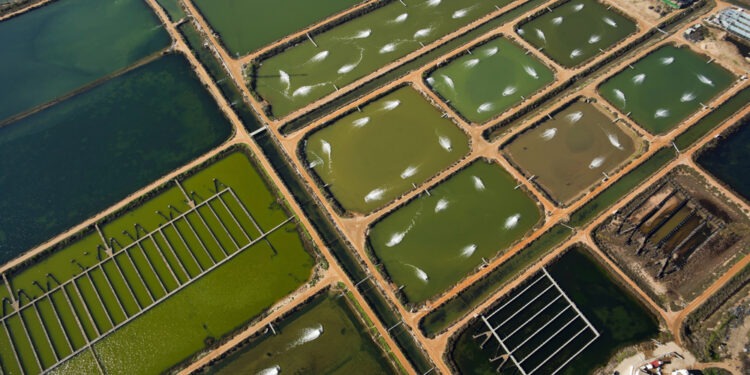From TNC a guide for more sustainable aquaculture – The Nature Conservancy (TNC) recently launched the guide A global monitoring, evaluation and learning framework for regenerative and restorative aquaculture: Helping people thrive through aquaculture, which aims to transform the way we view and manage aquaculture. This resource is designed to guide aquaculture producers, researchers and other key players in the industry towards practices that not only produce food, but also help marine ecosystems to flourish.
Aquaculture, often seen only as a method to produce food, actually hides incredible potential to contribute positively to the environment. If managed correctly, it can remove excess nutrients from the water, increase biodiversity and create complex habitats, playing a crucial role in the restoration and resilience of marine ecosystems.
However, many ecological benefits of aquaculture remain poorly understood by producers. This lack of knowledge, combined with the absence of standardised guidelines for measuring and evaluating these benefits, has limited the industry’s ability to fully capitalise on its regenerative potential.
To fill this gap, TNC’s new guide sets out clear criteria for monitoring and evaluating the positive environmental impacts of aquaculture, while also considering the socioeconomic implications. The tool is designed to be flexible, allowing producers to adapt it to the specifics of their work, whether they are growing macroalgae, molluscs or fish.
This guide not only serves as a handbook for marine and coastal aquaculture practices but also lays the groundwork for future extensions to cover freshwater aquaculture. Aimed at industry professionals, trade associations and other support organisations, TNC’s publication aims to be a reference for anyone interested in a more sustainable future for aquaculture.
With this initiative, TNC hopes to encourage greater adoption of aquaculture practices that not only respect the environment but also enrich it, promoting a more sustainable industry that is aware of its impact on the planet.
From TNC a guide to more sustainable aquaculture








